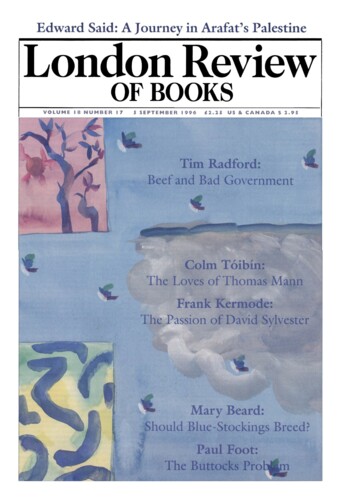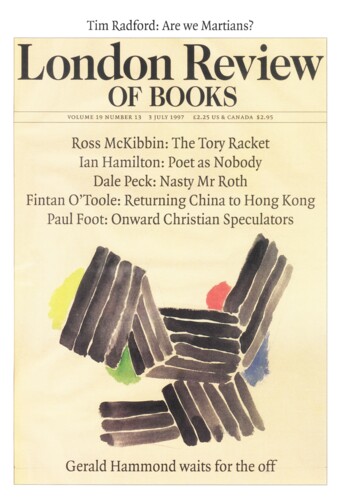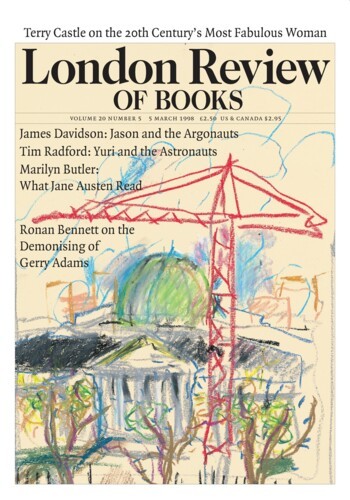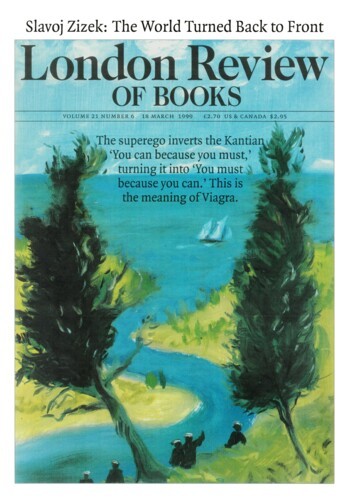Poor Cow
Tim Radford, 5 September 1996
All flesh is grass, said Peter the Apostle. In the United States, a calf runs the range for less than a year before going to a crowded feed-lot. It is treated with hormones to promote weight gain. Both there and in Britain the beast is likely to be drenched with antibiotics to keep down diseases and to promote further weight gain. It has one role in its short life – to get fat, on corn, sorghum, wheat, soybeans, whatever. This stuff is saturated with herbicides and pesticides. Consumers pay for what they eat: the National Research Council of the Academy of Sciences estimates that beef pesticide contamination represents 11 per cent of the total cancer risk from pesticides in US foods. On the other hand, the quicker you fatten a beast for slaughter, the higher your return.





